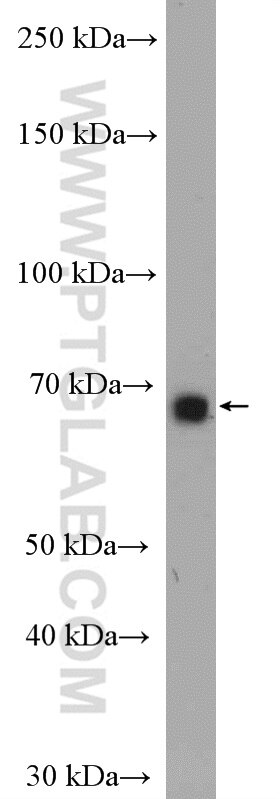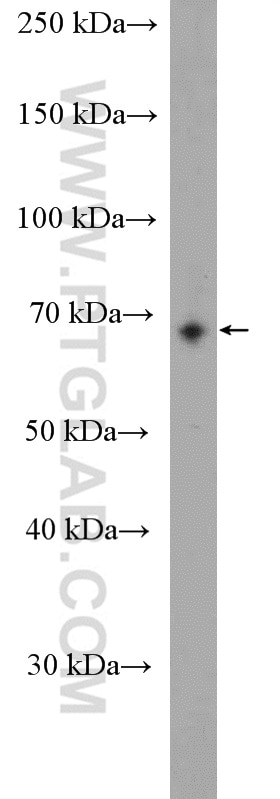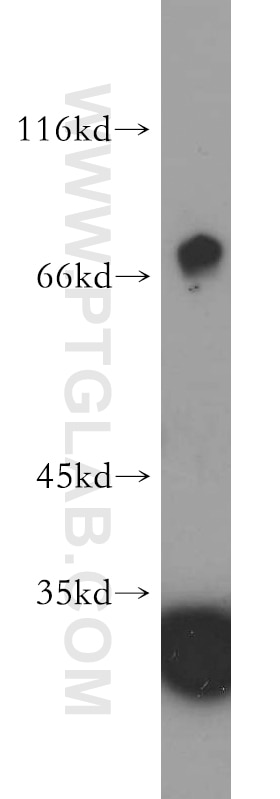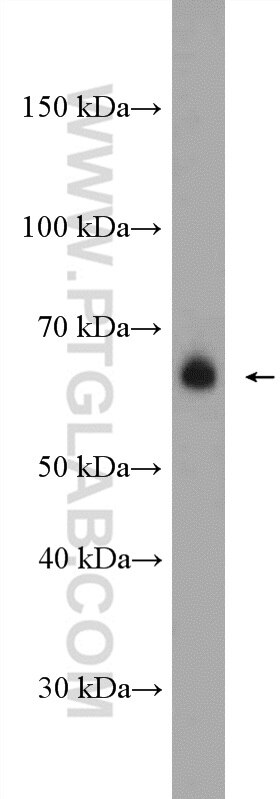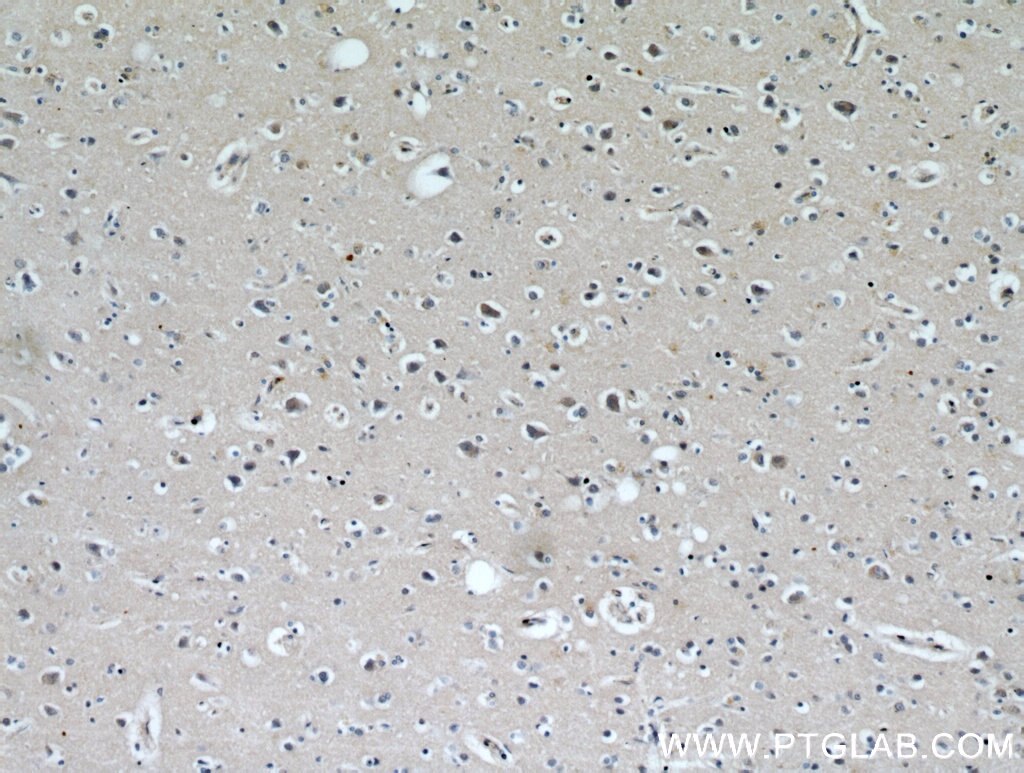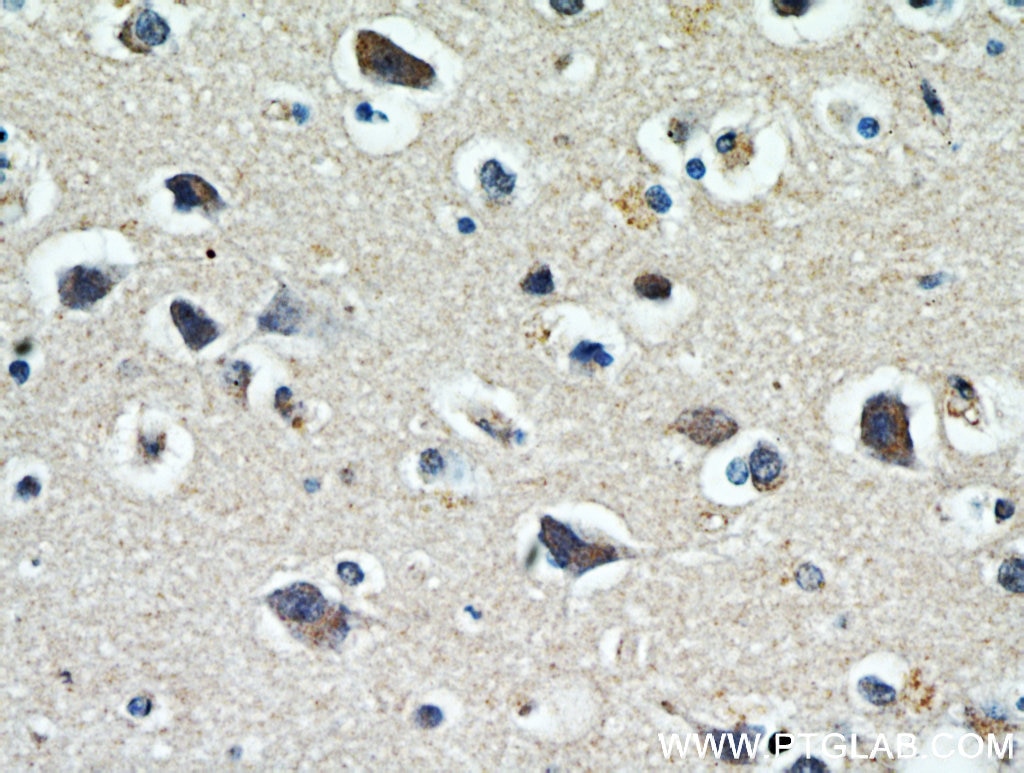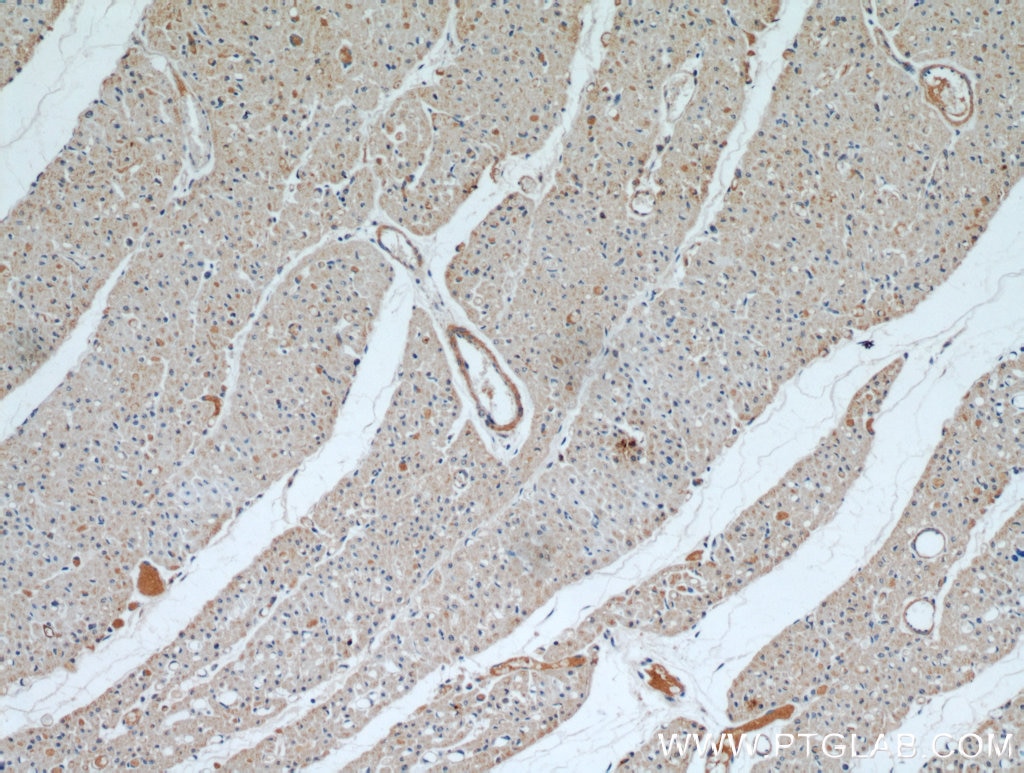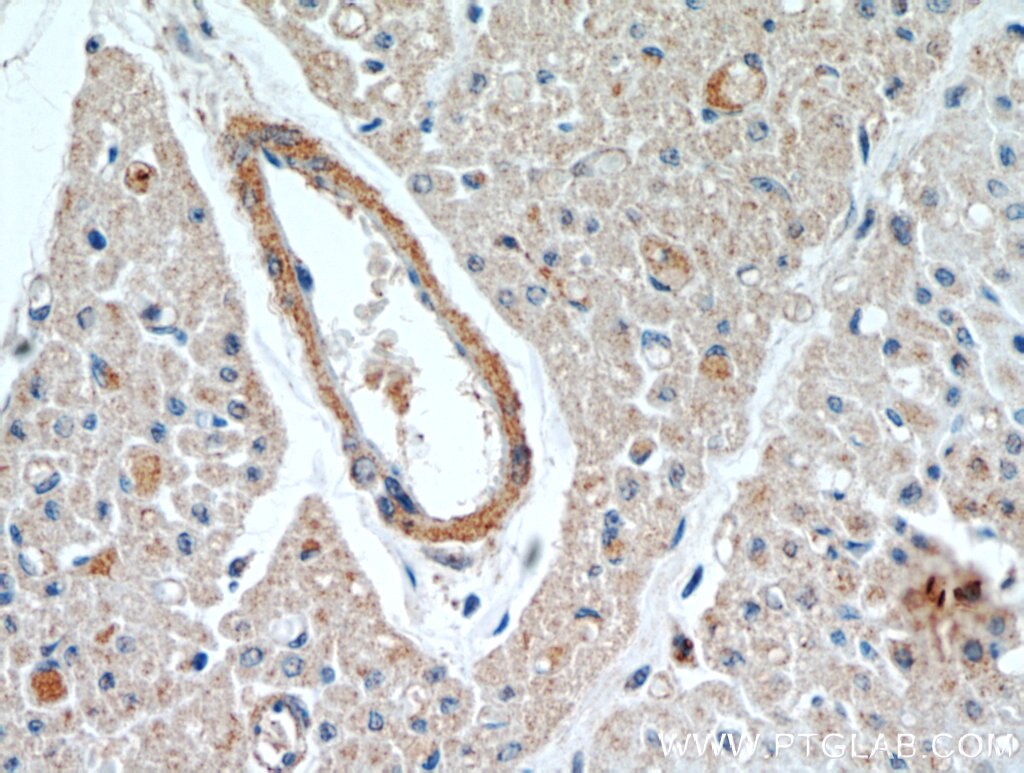WBSCR17 Polyklonaler Antikörper
WBSCR17 Polyklonal Antikörper für WB, IHC, ELISA
Wirt / Isotyp
Kaninchen / IgG
Getestete Reaktivität
human, Maus, Ratte
Anwendung
WB, IHC, ELISA
Konjugation
Unkonjugiert
Kat-Nr. : 21280-1-AP
Synonyme
Geprüfte Anwendungen
| Erfolgreiche Detektion in WB | Maushirngewebe, A549-Zellen, humanes Hirngewebe, Mauslungengewebe |
| Erfolgreiche Detektion in IHC | humanes Hirngewebe, humanes Herzgewebe Hinweis: Antigendemaskierung mit TE-Puffer pH 9,0 empfohlen. (*) Wahlweise kann die Antigendemaskierung auch mit Citratpuffer pH 6,0 erfolgen. |
Empfohlene Verdünnung
| Anwendung | Verdünnung |
|---|---|
| Western Blot (WB) | WB : 1:500-1:2000 |
| Immunhistochemie (IHC) | IHC : 1:20-1:200 |
| It is recommended that this reagent should be titrated in each testing system to obtain optimal results. | |
| Sample-dependent, check data in validation data gallery | |
Produktinformation
21280-1-AP bindet in WB, IHC, ELISA WBSCR17 und zeigt Reaktivität mit human, Maus, Ratten
| Getestete Reaktivität | human, Maus, Ratte |
| Wirt / Isotyp | Kaninchen / IgG |
| Klonalität | Polyklonal |
| Typ | Antikörper |
| Immunogen | WBSCR17 fusion protein Ag15792 |
| Vollständiger Name | Williams-Beuren syndrome chromosome region 17 |
| Berechnetes Molekulargewicht | 598 aa, 68 kDa |
| Beobachtetes Molekulargewicht | 70~90 kDa |
| GenBank-Zugangsnummer | BC069624 |
| Gene symbol | WBSCR17 |
| Gene ID (NCBI) | 64409 |
| Konjugation | Unkonjugiert |
| Form | Liquid |
| Reinigungsmethode | Antigen-Affinitätsreinigung |
| Lagerungspuffer | PBS with 0.02% sodium azide and 50% glycerol |
| Lagerungsbedingungen | Bei -20°C lagern. Nach dem Versand ein Jahr lang stabil Aliquotieren ist bei -20oC Lagerung nicht notwendig. 20ul Größen enthalten 0,1% BSA. |
Hintergrundinformationen
WBSCR17, also known as GALNT17, which encodes a brain-expressed N-acetylgalactosaminyl transferase (GalNAcT), is located at the distal edge of a region that is commonly deleted or duplicated in Williams Beuren Syndrome (WBS), a developmental disorder with motor and coordination problems, impaired visuospatial memory, and abnormal social interaction (PMID: 31554716). WBSCR17 loss-of-function has significant effects on cerebellar development, and is associated with phenotypes including developmental delay, deficits in motor coordination, reduced exploratory activity, and impaired social behavior (PMID: 22787146). With the calculated molecular mass of recombinant WBSCR17 being 68 kDa, the 70-90-kDa glycoproteins could also be detected due to post-translational modifications (PMID: 22787146).
Protokolle
| PRODUKTSPEZIFISCHE PROTOKOLLE | |
|---|---|
| WB protocol for WBSCR17 antibody 21280-1-AP | Protokoll herunterladen |
| IHC protocol for WBSCR17 antibody 21280-1-AP | Protokoll herunterladenl |
| STANDARD-PROTOKOLLE | |
|---|---|
| Klicken Sie hier, um unsere Standardprotokolle anzuzeigen |
